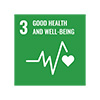Occupational health
By their nature, some of our activities may expose our workers to work-related hazards. Our priority is to prevent occupational illnesses and work-related fatalities through identifying and improving our management of health hazards.
Our approach
We are committed to protecting the health and promoting the wellbeing of our workforce and the residents of our host communities.
We do this by creating healthy workplacesand identifying and managing potential health risks, impacts and opportunities. We strive to manage health hazards exposure at source. For our communities, where appropriate we aim to contribute to efforts that combat regional health issues and promote healthy lifestyles.
We also identify opportunities to promote, educate and support our workforce in making healthy lifestyle choices and recognising the importance of good mental health. We expect everyone entering our industrial sites to be fit for work, free of fatigue and not under the influence of alcohol or drugs that may impair their ability to work safely.
Exposure to occupational hazards
Some of our activities may expose our workers to work-related hazards. We identify health hazards that could result in illness or injury, and prioritise exposure controls based on potential health consequences, e.g., carcinogens, mutagens and reprotoxic substances.
Our approach is for the continual improvement of our understanding and control of health hazards, with the goal of eliminating occupational diseases in our workplaces. We implement a risk-based approach that underpins the continual improvement of our understanding and control of health hazards exposure at source, with the goal of eliminating occupational diseases in our workplaces.
Common expectations and/or practices for health risk assessments (HRAs), Glencore exposure action levels (GEALs), hygiene monitoring, health hazards exposure reduction and fitness for work assessments are the core of our five-year health strategy. The strategy supports our industrial assets to develop and implement health management systems that strengthen controls for health hazards.
We require our industrial assets to conduct occupational HRAs and health needs assessments (HNAs), and to assess and manage community health risks, impacts and opportunities. This includes identifying and managing:
- health hazards and risks, including identifying potential exposures to workers, and determining preventative measures;
- key health issues, needs and interests for our workforce, including psychosocial risks, and implementing approachesto inform, educate and/or mitigate issues; and
- community health risks, impacts and opportunities, that may either impact our operations or are exacerbated by our presence in an area.
Our industrial assets develop, implement and monitor occupational health management plans based on the outcomes of each HRA and HNA.
Contributing to community wellbeing
We are committed to understanding and minimising community health risks at our industrial assets, and responsibly managing any health hazards for our workers and the communities in which we operate. Health risks and impacts vary depending on a range of operational and contextual factors, such as environmental conditions, socio-economic wellbeing, jurisdiction, and delivery of health services. We tailor our community HRAs to local contexts and seek to maximise opportunities to promote and support our workers to make healthy lifestyle choices, and we partner with public health services to advance positive community health outcomes.
We work closely with our industrial assets to support implementation of our Health Standard through skills and capacity building for our local teams in community health assessment, and hazard identification and mitigation. We also seek opportunities to align our industrial assets’ social investment programmes with community wellbeing and health promotion. We work with local authorities to identify opportunities where we can collaborate to improve the delivery of medical services to the community
Our HIV/AIDS management programmes
As a company operating in over 30 countries, we have the opportunity to make a positive impact on the communities near our assets. A key part of operating responsibly is to work with governments, NGOs and other stakeholders to support the health and wellbeing of our host communities.
In the DRC, we deliver health and education campaigns and effective prevention strategies through our Watu Wetu Health Services programmes. We provide voluntary counselling, testing and awareness, including information on how to reduce mother-to-child transmission, which we offer as part of our employees’ annual medical examinations. Collaboration is central to any successful approach to tackling HIV/AIDS, and we work with the country’s Ministry of Health, local authority and a local radio station.
In South Africa, we are working with local organisations to advance our Employee Wellness Programme, which aims to increase the number of HIV-positive employees registered in care and treatment programmes.
Principles we follow
-
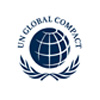 UN Global CompactVisit the website
UN Global CompactVisit the website -
 Principle 1Read more
Principle 1Read morebusinesses should support and respect the protection of internationally proclaimed human rights
-

-
ICMMVisit the website
-
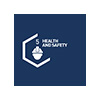
-
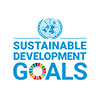 UN SD GoalsVisit the website
UN SD GoalsVisit the website -
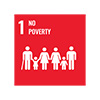
-
